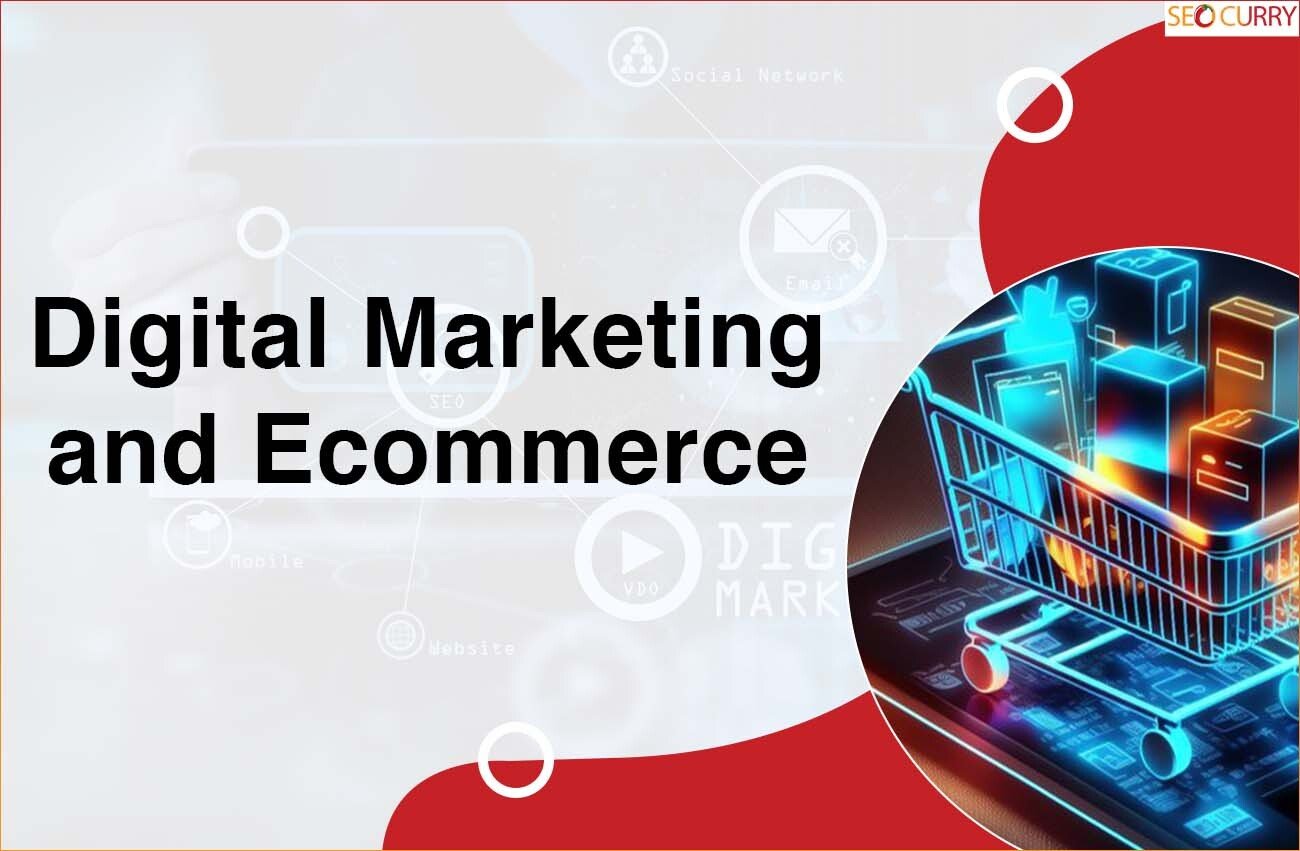The era of business has witnessed a paradigm shift.
The physical conceptualization of spaces concerning the business or market in the current scenario is tremendously affected by the advent of technology or the age of information and communication.
As businesses despite their physical presence do not want to miss out on an opportunity to explore the territory of virtual spaces in the form of e-commerce websites.
However, before jumping over to e-commerce, it’s pertinent for us to mention digital marketing.
If e-commerce is the final product then digital marketing is the process that completes and shapes this product.
Although, the phenomenal rise of digital marketing may seem recent historically it dates back to the 1980s.
Understanding Digital Marketing and Its Role in E-commerce
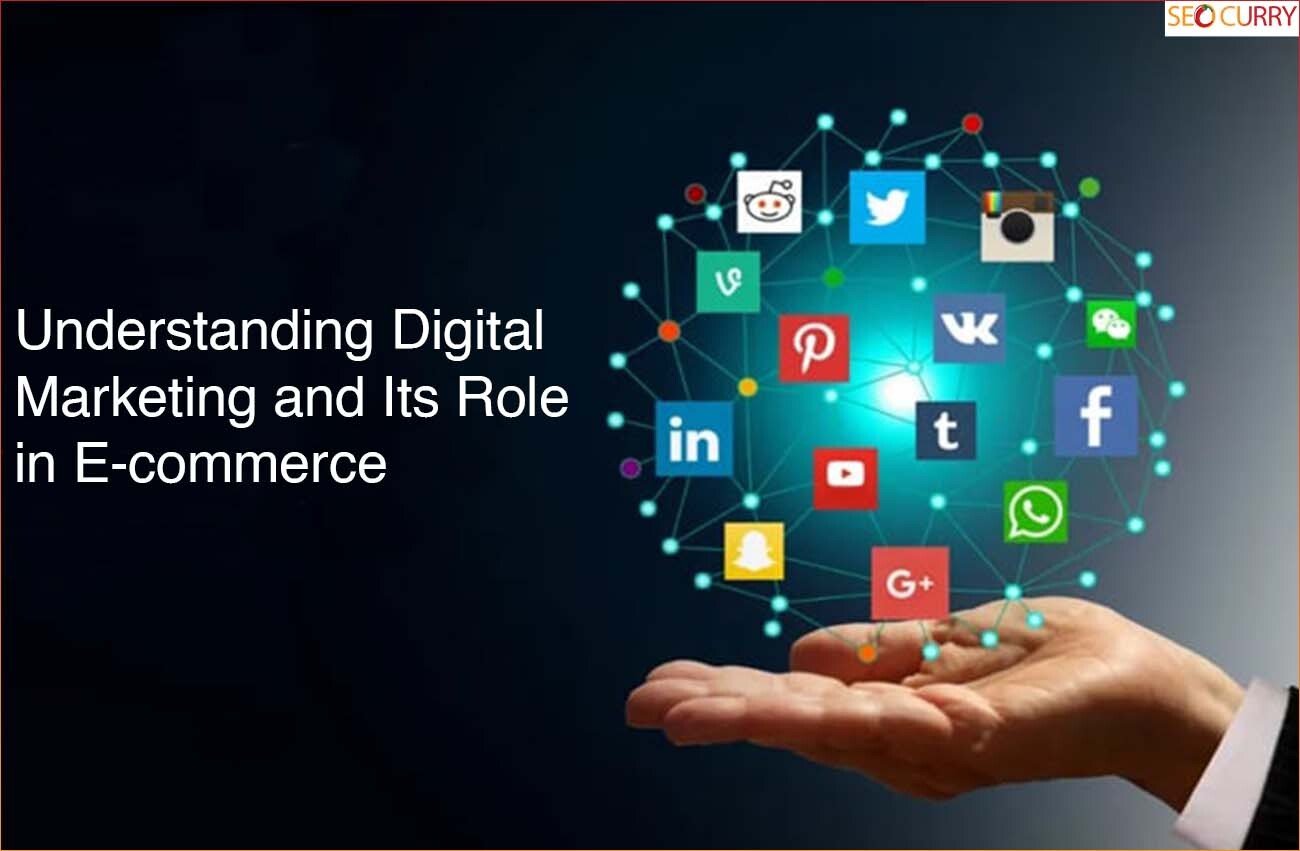
In simple terms, digital marketing refers to marketing over the Internet or online platforms. It was the coming up of the Internet along with global connectivity that provided the much-needed push to the case of digital marketing as a strategy towards a wide reach and amazing lead generation.
In layman’s terms, digital marketing can be defined as the process of marketing over the internet or any online medium.
To understand it more professionally, it’s a systematic online process passing through stages of identification and analysis of customer needs, followed by manufacturing of those needs at convenient prices suited at a mutual space or place for the seller and buyer, and lastly aiming at customer satisfaction and their constructive feedback for better performance in the future.
The expansion of such services in a short period has made digital marketing a bunch of hotcakes where every e-commerce website wants to have a piece of it.
Furthermore, one may easily get confused between e-commerce websites and digital marketing as both operate over the Internet.
But, one needs to keep in mind e-commerce is a business dealing with buying and selling goods and services over the Internet, as an online store.
Whereas, digital marketing is about the promotion of such online stores.
The Growth and Potential of Digital Marketing in E-commerce

In recent years, digital marketing as an industry has proved itself to be one of the most lucrative industries.
According to reports, its growth rate is projected at 9% from 2020-26 and its compound annual growth rate witnessed from 2020-22 is a phenomenal 22.47% almost equivalent to Rs. 24,000 crores.
The technological adeptness, connectivity, reach, and ubiquitousness has made digital marketing a formidable tool in the arsenal especially, for e-commerce websites.
Digital marketing is not only a solitary process but rather a culmination of various strategies comprising Search Engine Optimization (ecommerce SEO), Social Media Marketing, Pay-Per-Click Advertising, Web Designing, Content Marketing, Social Media Marketing, Email Marketing, and so on.
Now, let’s come on to the main part of this blog which deals with some of the most used steps to increase the growth of the e-commerce business.
Tips to Boost E-commerce Growth
Now, let’s delve into the key strategies and actionable steps that can significantly increase the growth of e-commerce businesses.
1. DON’T PLAY THE ODDS, PLAY THE CUSTOMER!
Statista Research Institute’s report of April 2024 mentioned the worldwide Internet users to be around 5 billion (more than half of the world population).
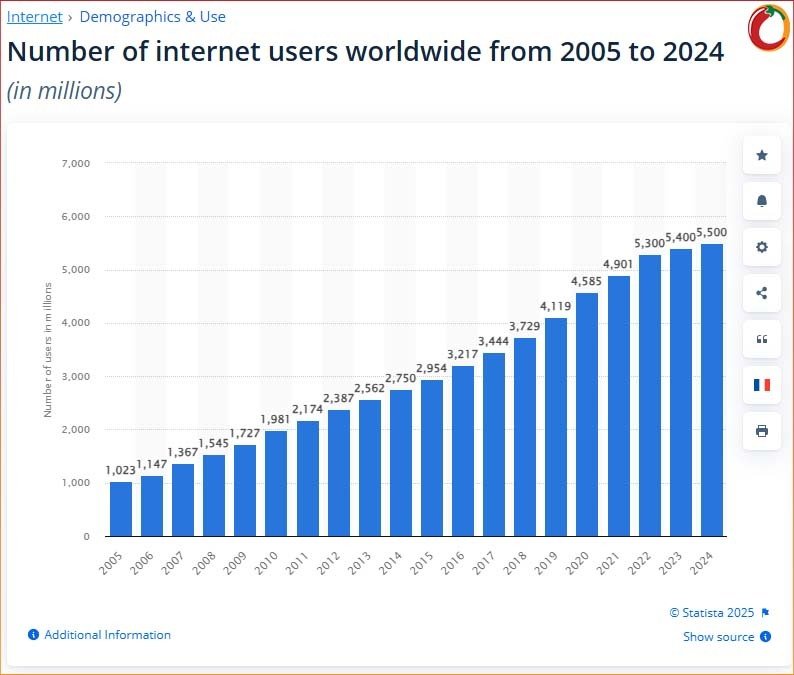
The numbers themselves show the potential customers that can be catered to by an e-commerce business.
Though, not all Internet users would want to purchase the products and services of the concerned e-commerce websites.
And, that’s the moment when digital marketing comes into the picture, the strategy of Search Engine Optimization (SEO) and Search Engine Marketing (SEM) rather than being overwhelmed by the numbers works to understand the customer preferences and needs.
SEO helps improve the ranking of your website or e-commerce business in search engine results for specific keywords, whereas SEM focuses on paid advertisements targeting those same keywords.
Both the strategies may seem to work out just fine, as it’s very well aware of the customer’s reduced attention span and knows that they may exhaust after surfing the first few options.
So, it’s essential to aim for the top spots for better search traffic, lead generation, and conversions.
2. SOCIAL MEDIA THE BLESSING IN DISGUISE

People using social media are on a phenomenal rise. The users have gone up to billions and the average time spent on such apps in recent years has gone up to more than 3 hours.
The rising numbers and significant amount of time spent on social media provided a fascinating platform to apply formidable digital marketing strategies.
Various reports and analytical studies have shown a significant rise of 13% in lead generation through social media.
It has acted as a blessing for e-commerce businesses, as it has made their marketing job more effective and efficient.
Also read – Best Chrome Plugins for SEO
3. RE-INVENTING THE CONTENT CHANNELS
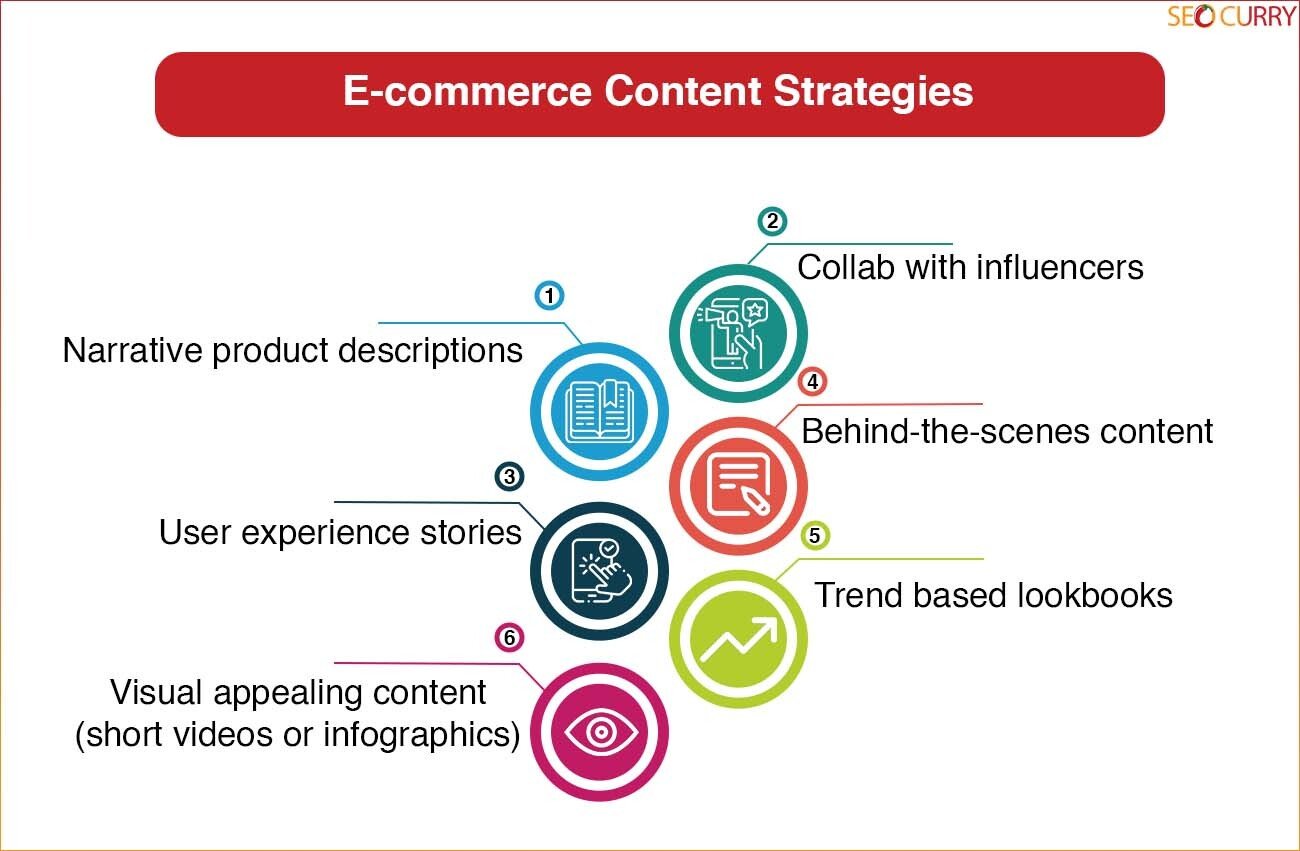
The most cited drawback encountered by digital marketing is the loss of personal touch in the virtual realm.
However, applying simple but solid content strategies can resolve this issue as it disseminates the idea in the minds of customers that e-commerce businesses value their opinion and feedback.
Through email campaigns, an e-commerce business tries to explain its products and services to a customer in a quest to form a sentimental and personal bond, which makes customers feel special.
Despite the bond being based on online threads, the words used to connect with customers play a pivotal role as it not only attracts their attention but makes them at the centre of all communication for the e-commerce business.
Content is considered the heart and soul of all digital marketing strategies and campaigns as it acts as the push or nudges in the process of converting a potential customer into a buyer.
Also Read – Common Questions Related to PPC
4. ROAD TO COST-EFFECTIVE MARKETING
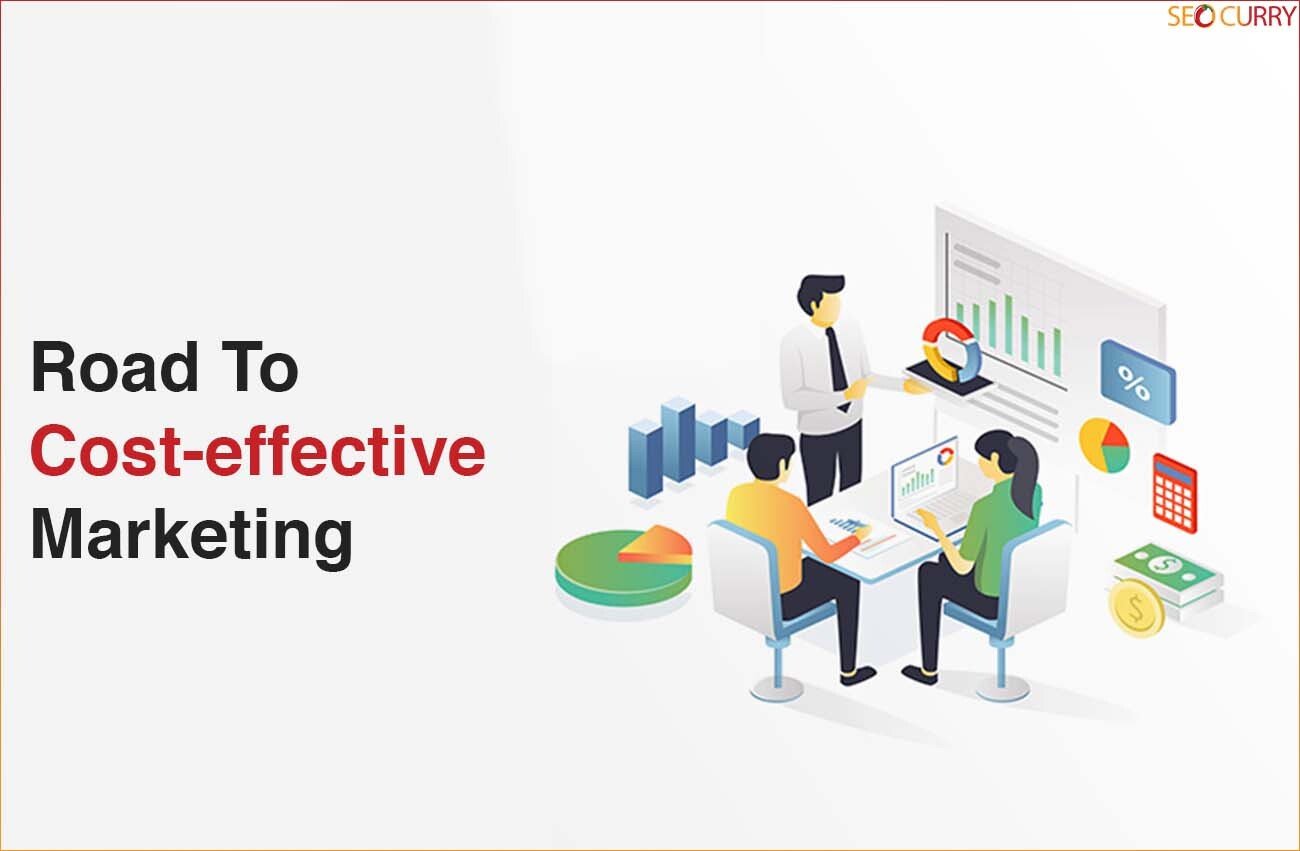
For a significant period, channels of traditional marketing included newspapers, magazines, hoardings, pamphlets, billboards, radio, television, telemarketing, and so on.
Have tried to monopolize the marketing world, where the scope of small players to enter and found their footing was extremely difficult as traditional forms of marketing required huge capital.
Since the advent of digital marketing services, small players or e-commerce businesses no longer require huge capital to advertise or promote their products or services.
By rationally opting for the perfect digital marketing strategies the e-commerce businesses can now generate leads, attract new customers, establish their brand identity, and yield extra revenues at nominal rates.
FUTURE PATH
Thus, the path of growth and glory for e-commerce businesses after the advent of digital marketing has been much more streamlined.
As e-commerce businesses no longer have to play the waiting game concerning funds or investors, rather they can hit the market as soon as their product or service is ready to serve the people.
The future of digital marketing is not only bright but rather a beacon of hope for the markets. The shift of the world towards technology, information, and communication has led it to the cusp of something great and different.
The staggering growth numbers, profitable revenues, and cost-effective strategies have made digital marketing the need of the hour and (re-)established the notion of ‘CUSTOMER IS THE KING’!
Digital marketing has led to meticulous planning, segmentation, identification of target market and potential customers, positioning, and enhanced goodwill for the e-commerce businesses which in near future will go further and further!

